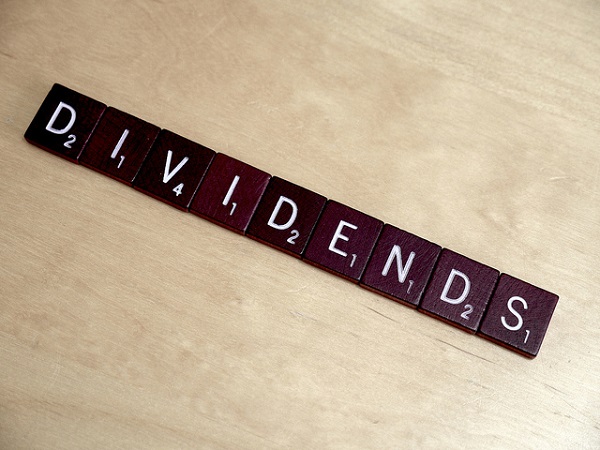If you give your friend Rs 10,000 and he returns you Rs 2,000, will you consider Rs 2,000 your profit? Of course not. Why? Because it is your money. He has merely given it back to you. If that’s the case, why should you treat dividend from a mutual fund in a different manner? In this post, I shall discuss some of the misconceptions investors have about mutual fund dividends
It is your money
If the NAV of MF scheme is Rs 100 and the scheme announces a dividend of Rs 5 per unit, the NAV will go down by Rs 5 after payment of dividend. So, the NAV will become Rs 95. It is as simple. Suppose you have 1,000 units of such scheme. Total value of your investment is Rs 1 lacs. You get a dividend of Rs 5,000 (Rs 5 per unit) and the NAV falls down to 95. Total value of your investment becomes Rs 95,000. So, you still have Rs 1 lac only. MF scheme does not pay you dividend from its pocket. It is your money only. So, don’t get overexcited. Even if the MF scheme had not paid the dividend, the money was still yours. You could have simply sold 50 units and got Rs 5,000.
Here is an excerpt from Scheme Information Document of HDFC Balanced Fund, “On payment of dividends, the NAV will stand reduced by the amount of dividend and dividend tax (if applicable) paid”
Dividends from mutual funds are not guaranteed
A number of investors opt for dividend option to get regular income. However, if that’s the case, be aware that mutual fund house is not obligated to pay you dividend. No matter how consistent the track record of dividend payments, the fund scheme may still skip dividends. The reasons for skipping dividends could range from sudden shrinkage in AUM due to heavy redemptions or due to poor performance of scheme etc.
As per a SEBI directive in March 2010, a MF house can distribute dividends from realized gains (booked profits) only. So, if the fund has not done well in the past year, its ability to distribute dividend may be compromised.
Additionally, you have no control over the quantum of dividend that is issued. That is entirely fund manager’s discretion.
You compromise the power of compounding by opting for dividend option
This is best explained with the help of an illustration. Suppose you invest Rs 10 lacs in a fund that ends up returning 12% p.a. I assume the returns are linear. Not a valid assumption for equity funds but will help explain the point. I further assume the fund scheme will pay dividend of 5% of NAV every year.
At the end of 15 years, you would have got dividends worth Rs 13.43 lacs. Additionally, the value of your investment would have grown to Rs 25.35 lacs. That makes it a total of Rs 38.79 lacs. I assume you didn’t reinvest the dividend and spent the amount to meet expenses.
Alternatively, if you have invested in Growth option (without dividend), your money would have grown to Rs 54.73 lacs. That’s Rs 15.93 lacs more than the dividend option. To know more about growth and dividend options of mutual funds, please go through this post.
What caused the difference?
You simply compromised the power of compounding by taking out dividends regularly. So, there was no compounding that worked on the dividend part.
You should not opt for dividend option if you are looking for long term wealth creation. In that case, always select Growth option.
Please understand the assumption is that the equity markets (and mutual funds) will continue to give good returns over the long term.
Dividend income on equity funds is tax-free
So are the capital gains if you sell after one year. Long term capital gains on equity funds (holding period > 1 year) are tax-free. So, if you are looking for tax free income or are in need of funds, you can simply liquidate a few units (if you hold for greater than 1 year) and get tax-free gains.
Mutual fund manager controls the payout of dividend. However, you can sell the units whenever you want.
Please note dividend and long term capital gains are exempt from tax only in case of equity funds. There are further complications if you consider dividends in debt funds. Go through this post for detailed write-up on taxation of dividend and capital gains for equity and debt funds.
Through dividends, I am getting my money back
A lot of investors feel that by getting regular dividends, their stake in the investment goes down. They feel they won’t lose much even if the MF or the stock markets perform badly. This makes them comfortable holding the investment. Additionally, this is one way of keep booking profits regularly. This is also their hedge if the markets crash suddenly.
Personally, I don’t subscribe to this school of thought. However, investing is as much about product selection as much it is about discipline. If this helps you maintain investment discipline, I won’t hold it against you. But you must understand that you are losing out on benefits of compounding.
PersonalFinancePlan Take
Always remember MF dividend is no extra profit. It is your money that the Mutual Fund house is giving back to you.
There is no reason why an equity mutual fund with a dividend option should be in your portfolio. If you are looking for long term wealth creation, go for growth option. By opting for dividend option, you won’t be able to unleash the full power of compounding.
If you are looking for regular income, dividend option is no good either. You have no control over the quantum and time of distribution. You don’t even control if the dividends will be distributed.
When it comes to debt funds, the story is slightly different. Of course you have no control over dividend distribution here too. However, the taxation of dividend option (as compared to growth option or regular fixed deposits) is marginally better for investors in the highest income tax bracket.
Image Credit: The original image and information about usage rights can be downloaded from Flickr/LendingMemo.










4 thoughts on “Mutual Fund Dividend is not Profit”
If invested lumpsum with growth option for 5 years and market at same level after 5 years , how will the power of compounding works……
Won’t work. But you wouldn’t end with a fortune either in case of dividend option.
Dividend payout can be used to reinvest in other ways ….
Where would you reinvest?
How do you decide the best way to invest your dividend?
How can you be sure that markets won’t move up?
Nobody has the gift of hindsight.
The entire argument is built around long term performance of equity markets. If you remove premise, everything falls apart.
If you know upfront, equity markets won’t do well, there is no need to invest in equity markets. Growth and dividend option come much later. In such a hypothetical case, you are much better investing in debt.